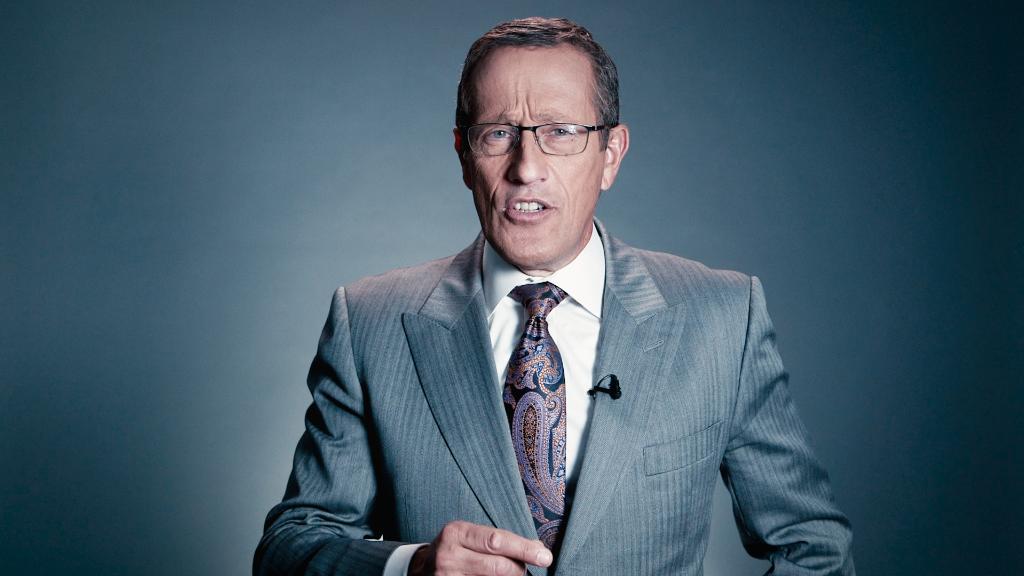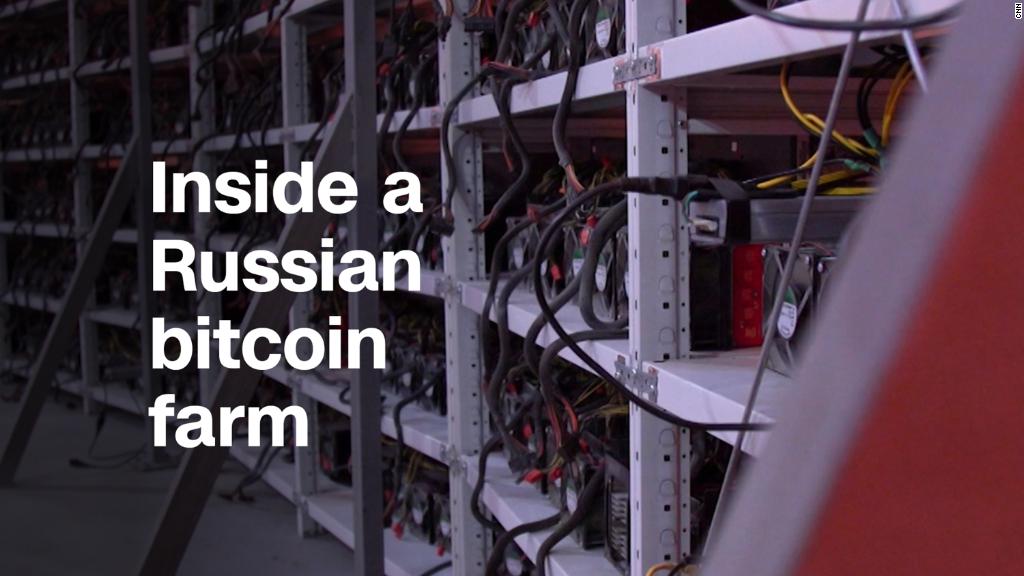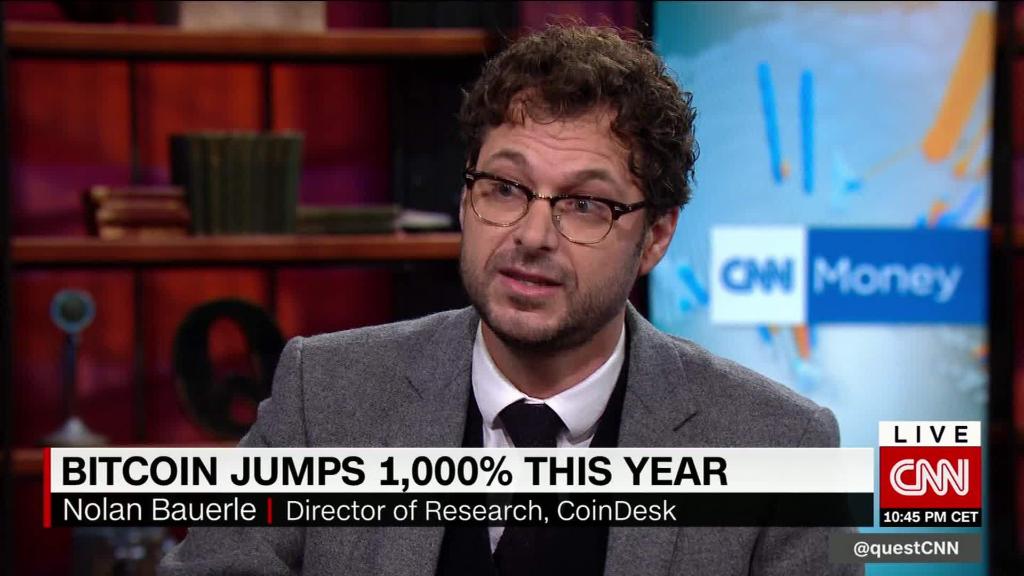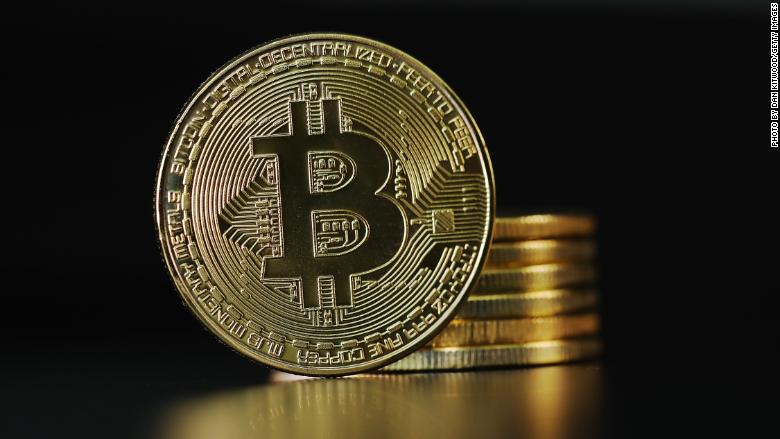
2017 has become the year bitcoin went big.
It started the year worth less than $1,000 but has soared above $17,000. Back in 2011, it was worth less than a dollar. It is being bought and sold by investors in a frenzy, driving the price higher and higher.
Some leading economists and financiers are calling bitcoin a bubble and a fraud, but industry insiders say they think it's only going to get bigger as it gains more widespread acceptance.
So how does the virtual digital currency work -- and what's behind its spectacular rise?
Related: Bitcoin pops above $17,000 for the first time
WHAT IS BITCOIN?
Bitcoin (XBT) was created in 2009 by an unknown person using the pseudonym Satoshi Nakamoto. Many of its backers saw it as a simple global payment system for anyone to use rather than a financial asset for investors to trade.
Unlike the U.S. dollar or Japanese yen, digital currencies such as bitcoin aren't issued by central banks like the Federal Reserve. Instead, they are "mined" by computers using complex algorithms.
Related: Bitcoin bubble brewing or is it still a bargain?
Payments in bitcoin can be made without traditional middlemen such as banks and without the need to give your name.
That made bitcoin popular with criminals and others who wanted to move money anonymously. It's also been adopted by businesses around the world as a way to pay for everyday things like groceries, train tickets and haircuts.
Exchanges, or marketplaces, allow people to buy or sell bitcoins using different currencies. People can send bitcoins to each other using mobile apps or their computers. It's similar to sending cash digitally, and a fee is charged for every transaction.
Bitcoins are stored in a "digital wallet" — a kind of virtual bank account that allows users to send or receive bitcoins, pay for goods or save their money.

Its price has taken off this year as mainstream investors have become more interested.
National governments are trying to keep up, puzzling over how to regulate bitcoin and other so-called cryptocurrencies. Countries like China and Venezuela have expressed interested in creating their own digital forms of money.
Related: Venezuela plans its own version of bitcoin
WHY HAVE PRICES GONE CRAZY?
Some experts say the biggest force pushing bitcoin prices higher this year has been ... higher prices.
Investors have been buying in this year out of "FOMO," or the fear of missing out, according to Dave Chapman, managing director of Octagon Strategy, a Hong Kong-based cryptocurrency exchange.
"There is admittedly a lot of speculation in this market," he said.

Bitcoin is also being driven higher by the hands-off approach many financial regulators seem to be taking toward the digital currency, Chapman said.
Japan's government, for example, gave bitcoin the seal of approval and started licensing bitcoin exchanges earlier this year.
The only black mark has been China, which has been cracking down on some uses of the virtual currency.
Announcements from some major financial institutions in the U.S. are helping bitcoin gain greater mainstream acceptance.
Related: Bitcoin craziness spreads to Overstock, Square
This month, investors will be able to start trading bitcoin futures via the Chicago Board Options Exchange and Chicago Mercantile Exchange.
New York's Nasdaq plans to launch its own bitcoin futures in 2018.
"The fact the CME, CBOE and Nasdaq will now all offer bitcoin products lends additional legitimacy" to the digital currency, said Chapman.
WHO'S BUYING IT?
For much of this year, it's mom-and-pop investors who have been buying in.
Many are in Japan and South Korea, where recent regulation changes have made it easier to trade bitcoin, according to experts.
But the biggest gains from the virtual currency's massive rally are likely to be concentrated among a relatively small number of investors.
Related: Russia eyes cryptocurrency dominance
When you invest in bitcoin, you don't have to buy a whole unit. According to research site BitInfoCharts, the vast majority of bitcoin accounts contain just 0.1 bitcoin or less. Just 3% of more than 20 million bitcoin accounts hold one bitcoin or more.
Big institutional investors such as hedge funds and assets managers have largely stayed on the sidelines. But some experts predict they'll move into the market in the coming months, despite skepticism from the likes of Warren Buffett and JPMorgan Chase (JPM) CEO Jamie Dimon.
WHAT'S NEXT?
Some industry insiders are incredibly bullish.
Arthur Hayes, CEO of Hong Kong bitcoin exchange Bitmex, predicts prices could hit a mind-boggling $50,000 by the end of next year, driven by the flow of money when institutional investors "pull the trigger" on investing in the digital currency.
Octagon's Chapman is willing to stick his neck out even further. He thinks it will go above $100,000 before 2018 is over.
Related: Nobel winner says bitcoin 'ought to be outlawed'
With a total value of around $270 billion, the bitcoin market is small compared with more established assets.
"This is a drop in the ocean compared to the trillions transacted daily" in currency and stock markets, said Thomas Glucksmann, head of marketing at Hong Kong bitcoin exchange Gatecoin. Just a small amount of mainstream investors' money would make a big difference to bitcoin prices, he said.

But some finance industry veterans are wary.
Oanda's Innes, who has worked in currency trading for decades, referenced a famous piece of investment advice from Buffett: "Be fearful when others are greedy."
"Following the herd rarely produces large scale gains," Innes said.
Investors were given a reminder of bitcoin's unpredictability in November. After topping $11,000, it plunged more than $2,000 before resuming its ascent.


